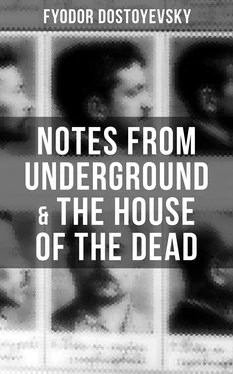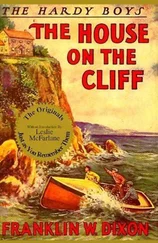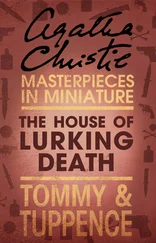1 ...7 8 9 11 12 13 ...25 ‘What kept you so long?’ asked one fellow who had evidently been expecting them. ‘Was it at the Zvierkoffs that you were detained?’
‘ At the Zvierkoffs? It will be fine weather, and the fowls will have teeth, when I go to see them,’ replied one of the women.
She was the dirtiest woman imaginable. She was called Tchekunda, and had arrived in company with her friend (she of the four kopecks), who was beyond all description.
‘ It’s a long time since we saw anything of you,’ says the gallant to Miss Four Kopecks; ‘you seem to have grown thinner.’
‘Perhaps. I was once good-looking and plump, but now you might fancy I had swallowed eels.’
‘And you still run after the soldiers, eh?’
‘ That’s all wicked gossip; in any case, if I was to be flogged to death for it, I like soldiers.’
‘Never mind your soldiers, we’re the people to love; we have money.’
Imagine this gallant with his shaved crown, with fetters on his ankles, dressed in a coat of two colours, and watched by an escort.
My irons had now been fixed, and I had to return to the prison. I wished Akimitch goodbye and moved off, escorted by a soldier. Those who do task work return first, and, when I got back to the barracks, a good number of convicts were already there.
As the kitchen could not have held the whole barrack-full at once, we did not all dine together. Those who came in first were first served. I tasted the cabbage soup, but, not being used to it, could not eat it, so I prepared myself some tea. I sat down at one end of the table with a convict of noble birth like myself. The prisoners were going in and out; but there was no want of room, for there were not many of them. Five men sat down apart from the large table. The cook gave each of them two ladles full of soup, and brought them a plate of fried fish. These men were having a holiday. They looked at us in a friendly manner. One of the Poles came in and took his seat by our side.
‘I was not with you, but I know that you are having a feast,’ exclaimed a tall convict who now came in.
He was a man of about fifty years, thin and muscular. His face indicated cunning and, at the same time, liveliness. His lower Up, fleshy and pendent, gave him a soft expression.
‘Well, have you slept well? Why don’t you say how do you do? Well, now my friend of Kursk,’ he said, sitting down by the side of the diners, ‘good appetite? Here’s a new guest for you.’
‘We are not from the province of Kursk.’
‘Then my friends from Tambof, shall we say?’
‘We are not from Tambof either. You’ve no claim on us; if you want to enjoy yourself go to some rich peasant.’
‘ I have Maria Ikotishna 1in my belly, otherwise I should die of hunger. But where is your peasant to be found?’
‘Good heavens! We mean Gazin. Go to him.’
‘Gazin is on the drink to-day; he’s devouring his capital.’
‘He has at least twenty roubles,’ says another convict. ‘It’s profitable keeping a drinking-shop.’
‘You won’t have me? Then I must eat Government food.’
‘Will you have some tea? If so, ask these noblemen for some.’
‘ What noblemen? They’re no longer noblemen. They’re no better than us,’ droned a convict who was seated in the corner and had not yet ventured a word.
‘ I should like a cup of tea, but I ‘m ashamed to ask for it. I have self-respect,’ said the fellow with the heavy Up, looking at me with a goodhumoured air.
‘I’ll give you some if you like,’ I said. ‘Will you have some?’
‘What do you mean-will I have some? Who wouldn’t have some?’ he said, coming towards the table.
‘Only think! When he was free he ate nothing but cabbage soup and black bread, but now he’s in prison he must have tea like a perfect gentleman,’ continued the convict with the sombre air.
1 From ikot, hiccough.
‘Does no one here drink tea?’ I asked him; but he did not think me worthy of a reply.
‘White rolls, white rolls. Who’ll buy?’
A young prisoner was carrying in a net a load of calachi (scones), which he proposed to sell in the prison. For every ten that he sold the baker gave him one for his trouble. It was precisely on this tenth scone that he counted for his dinner.
‘White rolls, white rolls,’ he cried, as he entered the kitchen, ‘white Moscow rolls, all hot. I’ld eat the lot of them, but I want money, lots of money. Come, lads, there’s only one apiece for every mother’s son.’
This appeal to filial love made everyone laugh, and several of his white rolls were purchased.
‘Well,’ he said, ‘Gazin has drunk in such a style, it’s downright sinful. He’s chosen the right moment too. If the man with eight eyes should arrive-we shall hide him.’
‘Is he very drunk?’
‘Yes, and ill-tempered too-unmanageable.’
‘There’ll be some fighting, then?’
‘Of whom are they speaking?’ I asked the Pole who sat next to me.
‘ Of Gazin. He is a prisoner who sells spirits. When he has gained a little money by his trade he drinks it to the last kopeck; a cruel, malicious brute when he has been drinking. When sober he is quiet enough, but when he is in drink he shows himself in his true character. He attacks people with a knife until it is taken from him.’
‘How do they manage that?’
‘Ten men throw themselves upon him and beat him like sack, without mercy, until he loses consciousness. When he is half dead with the beating, they lay him down on his plank bedstead and cover him over with his pelisse.’
‘But they might kill him.’
‘Anyone else would die of it, but not he. He is excessively robust; he is the strongest of all the convicts. His constitution is so hard that the day after one of these punishment he gets up perfectly sound.’
‘Tell me, please,’ I continued, still addressing the Pole, ‘why these people keep their food to themselves, and at the same time seem to envy me my tea.’
‘Your tea has nothing to do with it. They are envious of you. Are you not a gentleman? You in no way resemble them. They would be glad to pick a quarrel with you in order to humiliate you. You don’t know what you will have to put up with. It is martyrdom for men like us to be here. Our life is doubly painful, and great strength of character alone can accustom us to it. You will be vexed and tormented in all sorts of ways on account of your food and your tea. Although quite a number of men buy their own food and drink tea daily, they have a right to do so; you have not!’
A few minutes later he rose and left the table. His predictions were very soon fulfilled.
CHAPTER IV
FIRST IMPRESSIONS (continued)
Table of Contents
Hardly had M. cki, the Pole to whom I had been
speaking, gone out when Gazin, completely drunk, threw himself all in a heap into the kitchen.
To see a convict drunk in the middle of the day, when everyone was about to be sent out to work, and considering the well-known severity of the governor, who at any moment might visit the barracks; the watchfulness of the under-officer, who never left the prison; the presence of the old soldiers and the sentinels; all this quite upset the ideas I had formed of our prison. A long time passed before I was able to understand and explain to myself the effects, which in the first instance were indeed strange.
I have already said that all convicts had a private occupation, and that this occupation was for them a natural and imperious one. They are passionately fond of money, and think more of it than of anything else-almost as much as of liberty. A convict is half-consoled if he can ring a few kopecks in his pocket. On the contrary, he is sad, restless, and despondent if he has no money. He is ready then to commit no matter what crime in order to get some. Nevertheless, in spite of its importance in convicts’ eyes, money does not remain long in their pockets. It is difficult to keep it. Sometimes it is confiscated, sometimes stolen. When the governor, on one of his sudden raids, discovered a small sum that had been amassed with great trouble, he confiscated it. It may be that he laid it out in improving the food of the prisoners, for all money taken from them went into his hands. But generally speaking it was stolen. A means of preserving it was however, discovered. An old man from Starodoub, one of the Old Believers, took upon himself to conceal the convicts savings.
Читать дальше












